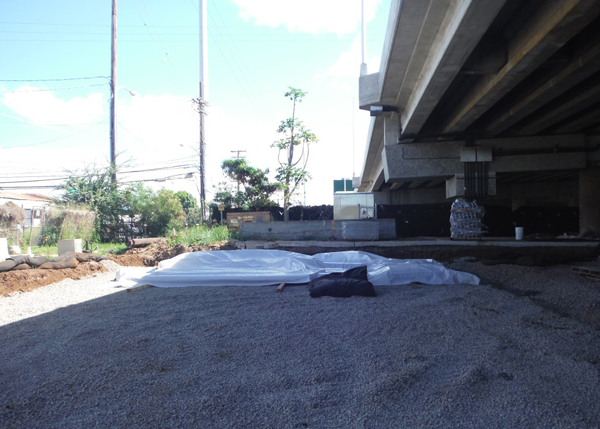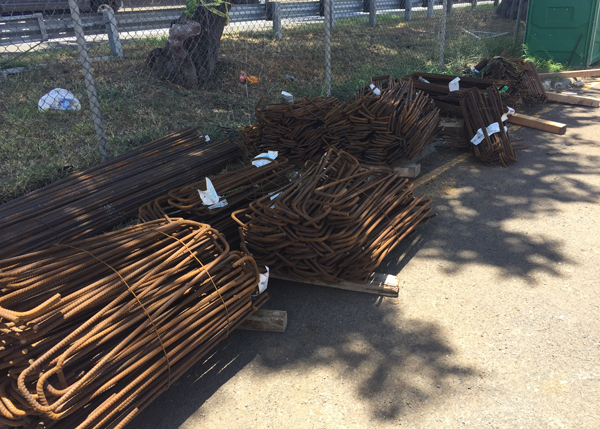Are your construction materials properly stored on your project to minimize storm water pollution?
During construction, storing various types of material is needed and proper handling is required to prevent and reduce storm water pollution. Establishing practices and procedures for handling and storing construction materials through the life of a project can minimize the potential for pollutants coming into contact with storm water.
Materials such as rebar, galvanized steel, plaster, fertilizers, pesticides, paints, solvents, glues, curing compounds, fuel, oil, and grease are used on construction projects and have the potential to pollute storm water.


Consider the following practices for handling and storing construction materials on your site:
- Designate a specific area for storing material
- Store material under cover
- Provide adequate containment measures
- Maintain adequate distance from storm drains and watercourses
- Minimize on-site inventory of materials
Appropriate planning for handling and storing materials that will be used on a construction site can reduce the potential for polluting storm water. Additionally, minimizing exposure of construction materials to storm water will further reduce the potential for pollution.
Regular inspections and maintenance of construction material storage areas is needed to ensure proper management of construction materials is on-going throughout construction. While handling and storing construction materials is part of construction, minimizing pollutants discharged from a site is also part of construction.

